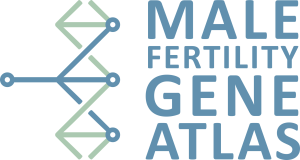FSHB -211 G>T Polymorphism as Predictor for TESE Success in Patients With Unexplained Azoospermia
Alexander Siegfried Busch, Frank Tüttelmann, Jann-Frederik Cremers, Maria Schubert, Verena Nordhoff, Andreas N Schüring, Michael Zitzmann, Jörg Gromoll, Sabine Kliesch, 21.01.2019
BUSCH, Alexander Siegfried, et al. FSHB− 211 G> T Polymorphism as Predictor for TESE Success in Patients With Unexplained Azoospermia. The Journal of Clinical Endocrinology & Metabolism, 2019, 104. Jg., Nr. 6, S. 2315-2324.
Publication: https://doi.org/10.1210/jc.2018-02249
 Disclaimer
Disclaimer
The publication FSHB -211 G>T Polymorphism as Predictor for TESE Success in Patients With Unexplained Azoospermia by Alexander Siegfried Busch, Frank Tüttelmann, Jann-Frederik Cremers, Maria Schubert, Verena Nordhoff, Andreas N Schüring, Michael Zitzmann, Jörg Gromoll, Sabine Kliesch is not published under an open access license. Therefore, only content curated by the MFGA team can be shown. For abstract, images and tables please follow the link to the original publication.
Curation by the MFGA team Relevant data sets presented in the publication have been identified. If possible, annotations (title, general information, conditions, processed tissue types and processed cell types) have been added based on information from the publication.
Data set 1:
Genome: Targeted Genotyping
Species
| Species |
|---|
| Human |
Conditions
| Human phenotype ontology | Participants | Comment |
|---|---|---|
| HP:0011961: Non-obstructive azoospermia | 659 | See table 1. |
| HP:0011962: Obstructive azoospermia | 125 | See table 1. |
| HP:other: Other | 31 | Y-Microdeletions. See table 1. |
| HP:klinefelter: Klinefelter Syndrome | 260 | See table 1. |
Tissue Types
| BRENDA tissue ontology | Maturity | Description | Species | Replicates |
|---|---|---|---|---|
| BTO_0001363: testis | Human |
